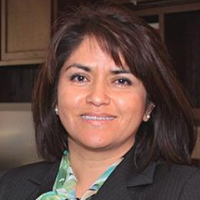25,000 “Overincome” Americans Live in Public Housing, Including a Nebraska Millionaire
 Lourdes M. Castro Ramirez, Principal Deputy Asst Secretary of HUD's Office of Public & Indian Housing
Lourdes M. Castro Ramirez, Principal Deputy Asst Secretary of HUD's Office of Public & Indian Housing
A government watchdog has discovered the Department of Housing and Urban Development (HUD) has allowed local public housing agencies to rent to Americans who make far more money than the threshold to qualify for such housing.
HUD’s Office of Public and Indian Housing says in a new report that more than 25,000 “overincome” people, including a Nebraska millionaire, reside in public housing.
The millionaire has lived in a public housing unit in Oxford, Neb., for the past 10 years. The unnamed individual pays $300 a month in rent, while his or her annual income stood at more than $65,000 as of last year. The tenant had total assets of nearly $1.6 million, which included stock valued at $623,685, real estate valued at $470,600, a checking account with a balance of $334,637, and an individual retirement account with a balance of $123,445, according to the report.
The low-income threshold for the Oxford Housing Authority was a maximum of $33,500. The millionaire was eligible under the guidelines when he or she moved into the housing in 2005. Tenants’ income is checked only when they move in and as long as they adhere to the lease agreement, they can stay in public housing indefinitely.
The “Authority also claimed that it has had difficulty fully leasing units in all of its public housing projects. Leasing a unit to an overincome family is preferable to having a vacant unit in order to keep a project occupied and viable in the community.”
Of the 25,000 overincome people identified by the report, more than 10,000 were in New York City, where more than 300,000 others are on waiting lists to receive public housing.
Forty-five percent of the overqualified public housing tenants nationwide were earning $10,000 to $70,000 a year more than the threshold allowed to get into the system. “About 1,200 of them had exceeded the income limits for nine years or more, and almost 18,000 for more than a year,” according to The Washington Post.
Milan Ozdinec, HUD’s deputy assistant secretary for public housing and voucher programs, defended the policy that allowed overincome residents to remain in public housing to inspector general David Montoya. “There are positive social benefits from having families with varying income levels residing in the same property.
“Forcing families to leave public housing could impact their ability to maintain employment if they are not able to find suitable housing in the neighborhood,” Ozdinec wrote. “Further, for families with children, it may be more difficult to find affordable child care, and it may impact school-age children’s learning if they are forced to change schools during a school year.”
The report said, “We did not find that HUD and public housing authorities had taken or planned to take sufficient steps to reduce at least the egregious examples of over income families in public housing.”
“Therefore, it is reasonable to expect the number of overincome families participating in the program to increase over time.”
-Noel Brinkerhoff
To Learn More:
Overincome Families Residing in Public Housing Units (Office of Public and Indian Housing) (pdf)
A Family in Public Housing Makes $498,000 a Year. And HUD Wants Tenants Like This to Stay. (by Lisa Rein, Washington Post)
- Top Stories
- Unusual News
- Where is the Money Going?
- Controversies
- U.S. and the World
- Appointments and Resignations
- Latest News
- Trump Orders ICE and Border Patrol to Kill More Protestors
- Trump Renames National Football League National Trump League
- Trump to Stop Deportations If…
- Trump Denounces World Series
- What If China Invaded the United States?






Comments